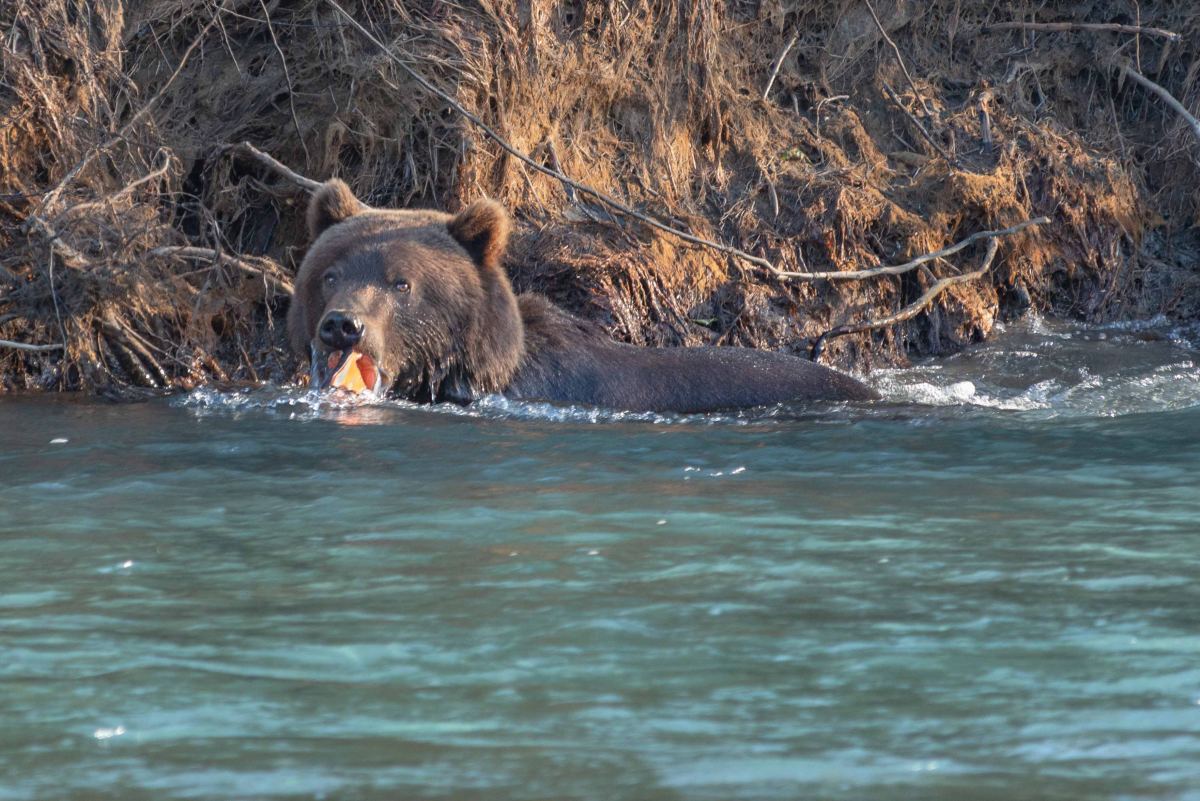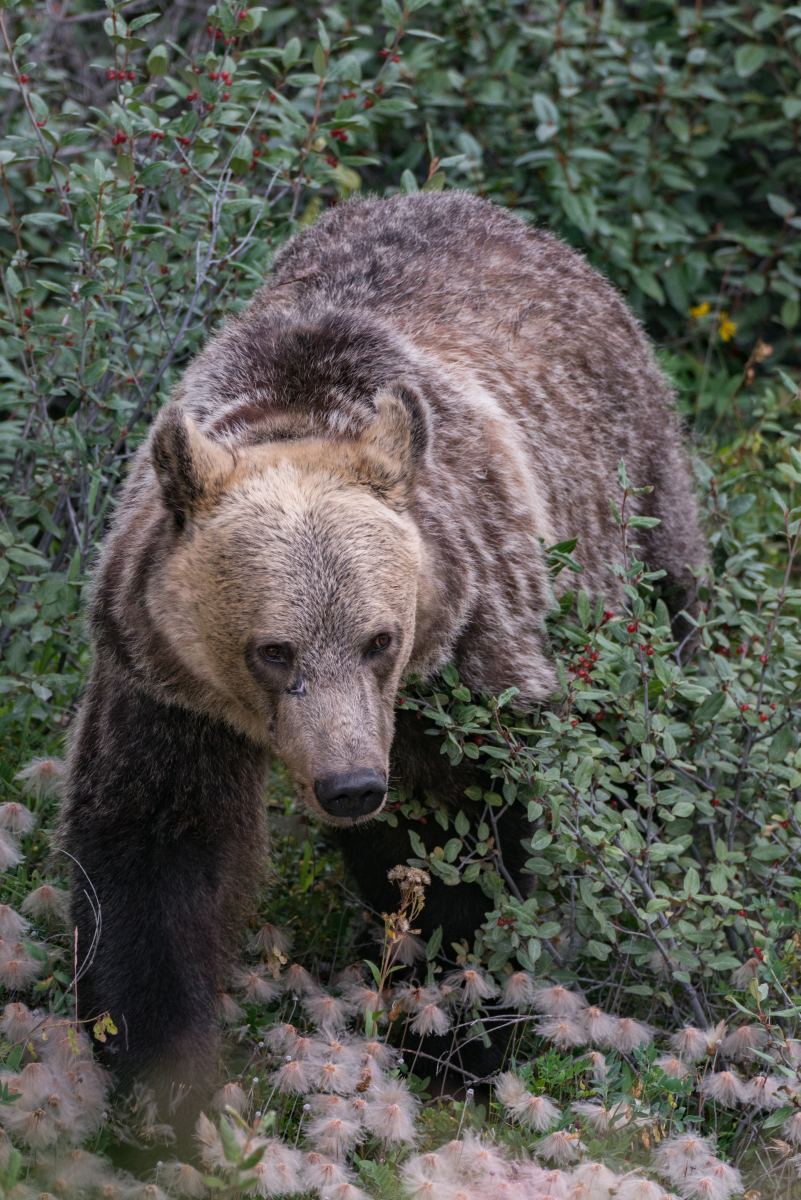Spring is almost officially here, bringing us warmer temperatures and longer days. Those who sleep through the winter are waking up—and by “those,” we mean bears. Bears from Connecticut to Western Canada are starting to rise, whether naturally or by human-caused disturbances. It is always important to give them their space.
For bears, how they went into hibernation dictates how they wake up. For example, if a bear got tons of calories in the fall, they might not be super hungry when they wake up. Another factor is how warm or cold the winter was. If it was a very cold winter, the bears might have used up more fat to keep them warm, thus making them more calorically deprived when they wake. If the winter was warmer than average, some very large males may not have denned at all.
“I have encountered two different male grizzlies during a warm winter. If it got cold for a couple of days, they would just find shelter, but would be back out when it got warm again,” field researcher Colleen Campbell tells me. “It is best to just give them their space, always.”
Campbell has followed bears and other wildlife in the Southern Alberta area in Canada for decades. “They need to eat and they need privacy,” she says. “Bears are a lot like us, some are easy-going, some are uptight and nervous. You never know how they are going to act, so the best thing we can do is be respectful of their spaces.”

This starts with expressing respect for wildlife like you would show respect to other people. When traveling in the wilderness, broadcast your presence by making noise. This will likely protect you from surprise encounters with most wildlife. Many wild animals, bears included, are not very interested in humans and as wildlife cameras have shown, they will avoid people as much as they can. Maintain clean campsites and rest stops. Always carry bear spray and know how to use it. Never enter an area that has been restricted to human travel.
Campbell knows that seeing wildlife is part of the draw to the area and that many people will drive through national parks just to see animals. Campbell likes the old adage, “the backside of a bear is just as good as the front of a bear,” but advocates for a different kind of experience.
“I suggest that people stay in their car and watch rather than trying to take a photo,” Campbell says. “Then stop at a picnic area, or later, for a coffee and make a little drawing on some card, write a short paragraph about seeing the bear. Document what it was doing and where you were. Then send it to someone you love as a postcard. A good story lasts a lot longer than a mediocre photo.”

Campbell, who is an artist, has intertwined her field research with her art. Aside from making pencil sketches of bears she has seen, she also has hand-drawn family trees of the bears she has studied, chronicling their births, offspring, human interactions, and deaths. In her family tree drawings, she has a different symbol to indicate whether a bear’s death was caused by humans (indirectly or directly) or was natural.
Our actions as humans have far greater consequences to wildlife than the other way around. Bears and wildlife that have had interactions with humans can often be euthanized or relocated, which is almost certain death, as well.

“They learn from their mother, where to get food, how to survive, how to interact with humans, all of that comes from their mom,” explains Campbell. “This is why it is so important for them to be able to stay in their home ranges.
“Bears overexposed to humans may alter their behavior—become either too laissez-faire or aggressive. In either case, that individual may be relocated or euthanized. Bears don’t leave their cubs in random places, just like human parents don’t just drop their kids off somewhere random. Like humans, they won’t survive.”
Knowing that poor human behavior has ramifications for bears should help us learn to behave differently when we encounter them. It increases safety for us, and for the bears.
So, a friendly reminder as springtime approaches: Please use caution and respect the wild places that you visit this upcoming season. Happy trails!
from Men's Journal https://ift.tt/2TG8hwf
No comments:
Post a Comment